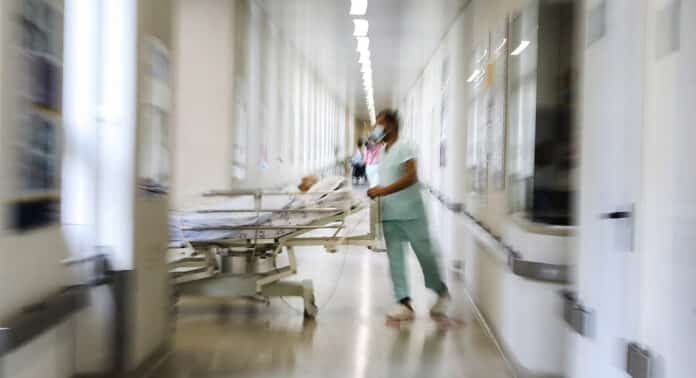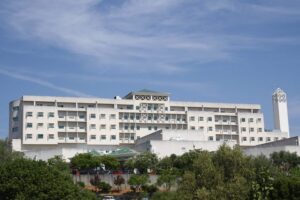President marks date calling for innovative solutions to guarantee long-term sustainability
Portugal’s ailing SNS national health system – in the news constantly through the summer due to chronic constraints – is 45 years old today.
Political figures have been ‘making declarations’ of how important it is; how it is a pillar of democracy, etc., but the truth is that this has not helped it ‘work’. The years of people ‘failed by the health service’/ waiting years for consultations and surgeries are well-documented, and dismal.
Thus President Marcelo’s contribution to the marking of the date seems the most ‘down to earth’: the SNS has improved the lives of millions of people but needs innovative solutions to guarantee its effectiveness and long-term sustainability, he wrote in a note published on his official website.
“The President of the Republic is marking the 45th anniversary of the SNS, a fundamental pillar for the promotion of health, with significant gains for the country. Through its mission to care for and protect, the SNS has significantly improved the lives of millions of people, and its importance to society remains inestimable”, the note begins.
According to Marcelo Rebelo de Sousa, today, while celebrating “these achievements” for the health of the Portuguese, “it is crucial to look to the future, recognise the challenges facing the SNS and seek innovative solutions to ensure the long-term sustainability and effectiveness of the SNS.
“Congratulations to everyone who makes up the national health service for its successes and the positive impact it has had over these four and a half decades”, he concludes.
The SNS was formally created on 15 September 1979, when the law that established the universal health system in Portugal was published.
In June this year, this public service had a total of 150,333 employees, while in June 2019, even before the covid-19 pandemic, there were 130,752, according to the SNS transparency portal, writes Lusa.
“With its funding ensured by the State Budget, the SNS cost around €14 billion in 2023, 6.8% more than the previous year (+892.3 million euros), according to data from the Public Finance Council”, adds the state news agency – yet as all readers will be aware, the problems, complaints and syndicate disputes appear to be neverending.
Tabloid Correio da Manhã has spent very little space on the anniversary today, marking it only with the suggestion of neurologist A. Castro Caldas who argues that the SNS should not pay for the treatment of people with ‘high earnings’. “They should pay a part, as happens in Canada”, he is quoted as saying, suggesting this is a “logical” solution.
Considering the number of citizens who pay for private health insurance these days n (reportedly 42%) – on the basis that it is the only way to get timely access to treatments (particularly surgeries) – there may not be too much practical opposition to such an idea, although ‘ideologically’ it will undoubtedly be seen by certain political parties as anathema.



















